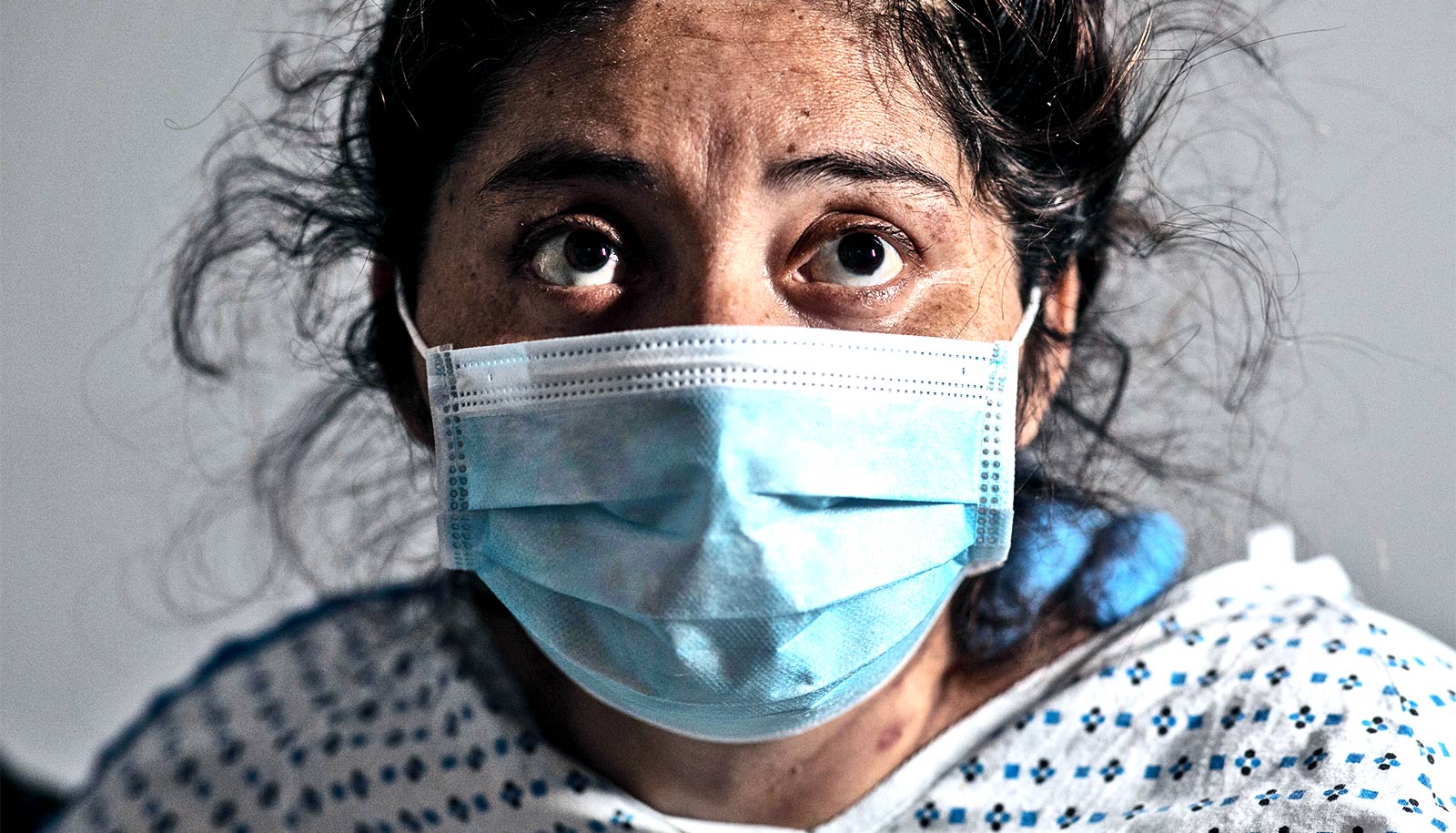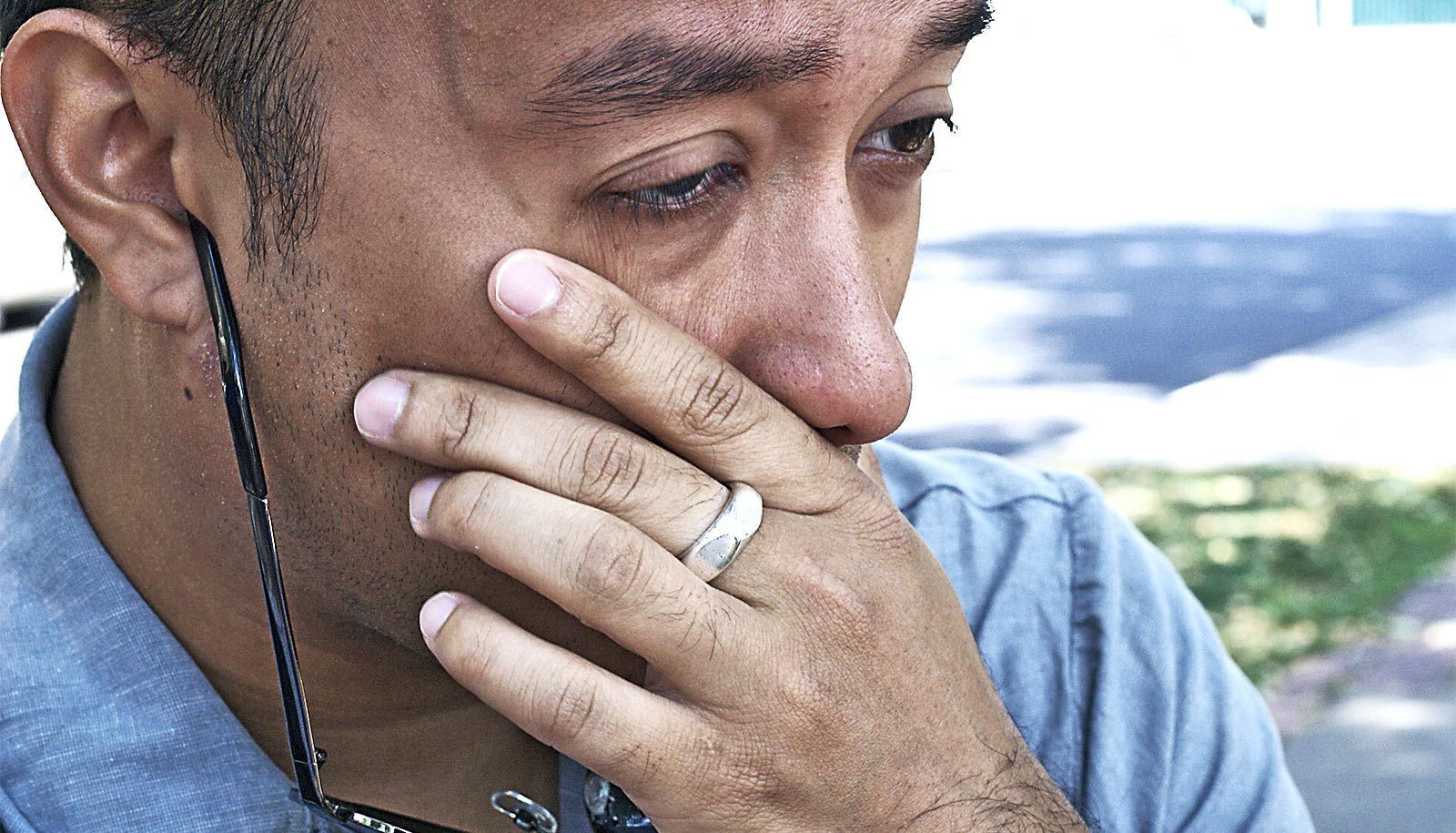The rate of depression among college students has increased since the start of the COVID-19 pandemic, according to a new survey.
The COVID-19 pandemic is putting significant stress on college students, many of whom are worried about increasing financial pressures caused by the pandemic and the lack of easily accessible mental healthcare, the survey also finds.
The new Healthy Minds Network survey of more than 18,000 college students on 14 campuses.
The survey, conducted between March and May of this year in collaboration with the American College Health Association, focused on students’ attitudes, concerns, preventive behaviors, and their perceived supportiveness of colleges and universities related to COVID-19.
The survey’s findings can help inform decisions by college and university leaders who are positioned to implement programs and policies to support students’ needs over the summer and into the fall 2020 semester, says mental health expert Sarah Ketchen Lipson, an assistant professor of health law, policy, and management at the Boston University School of Public Health and co-principal investigator of the national Healthy Minds Study.
“There is a strong economic case for investing in programs and services to support student mental health,” says Lipson.
“Our prior research has shown that mental health problems such as depression are associated with a two-fold increase in the likelihood of dropping out of college.”
Depression among college students
Lipson says that risk is significantly decreased when students receive support, including support through online mental health resources, which are in high demand at the current moment. Survey data from March, April, and May show that 60% of students say the pandemic has made it more difficult for them to access mental health services.
“Even with the current financial uncertainty for institutions of higher education, investments to support student mental health, especially those that leverage mobile technology, should be prioritized,” Lipson says.
The report on the survey’s findings notes that symptoms of mental health conditions have been high in college student populations since before the start of the pandemic. But relative to fall 2019, the prevalence of depression increased while substance use decreased in spring 2020. And compared to the previous year, in March to May 2020 a higher proportion of students reported that their mental health negatively affected their academic performance.
“Comparing Healthy Minds data from fall 2019 to the data collected from March to May 2020, our research shows increasing rates of depression in student populations,” says Lipson.
“We also see troubling changes to risk factors affecting both well-being and college retention, as well as those that reinforce inequalities, particularly for students of color who face systemic barriers to college persistence and lower access to and quality of mental health services.”
Supportive faculty and staff
The data are not all bad news: Nearly 70% of students surveyed said that their campus administration has been supportive or very supportive during the pandemic, and 78% said their professors had been supportive.
“It’s encouraging to see that a high proportion of students felt supported by their campus and especially by their faculty members,” says Lipson.
“In the spring semester, we saw many examples of faculty being flexible with assignments and grading, and I think faculty will need to build on this flexibility and supportiveness as we move into the fall semester. I encourage faculty to educate themselves on campus mental health resources and referral processes, and to exercise compassion when teaching and mentoring under these truly unprecedented conditions.”
The Healthy Minds survey also found that about 15% of students believe that they may have had COVID-19 based on symptoms they experienced, but only 1% reported a test-confirmed case. Of the student, 60% said they were susceptible to contracting the virus. About 65% are very or extremely concerned about how long the pandemic will last, and 64% are very or extremely concerned about people they care about contracting COVID-19.
Asked how closely they followed public health guidelines, 60% said they followed recommended hygiene practices very closely, and 70% said they practice physical distancing.
Support for students of color
The survey also asked students about race-based discrimination. Of the participants, 6% said they had experienced race-based discrimination as a result of the pandemic, while 41% reported witnessing race-based discrimination (online or in person).
Lipson says the data underscore the need for changes that can advance equity, especially for students of color, who experience system-level forces that undermine well-being and academic performance.
“At BU,” she says, “where we are engaged in new ways in conversations around antiracism at the university, an important question to ask, one that can guide decisions in line with our values is: ‘What does an antiracist approach to improving access to mental health services look like?’ Put simply: We need to listen to the needs of and then invest in resources that support the well-being of Black students and other students of color on campus.”
Source: Boston University



